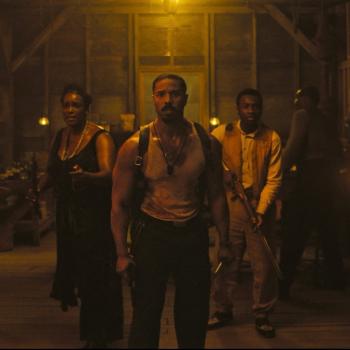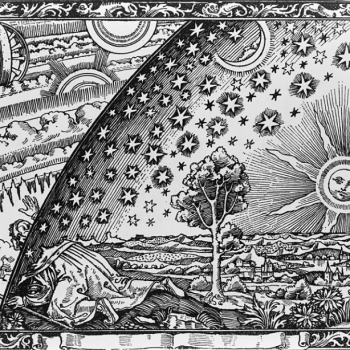Few of us will ever confront the sorts of bargains presented to The Booth's protagonists. And fewer still (I trust) would struggle with whether or not killing, maiming, or robbing others could ever be justified by our own selfish wishes. While some of us will surely be called to struggle through the suffering and death of loved ones, how many of us would seriously consider killing someone else's innocent child if we knew that our own children would survive as a result of our actions? Or would be willing to blow up a coffee shop full of strangers for the sake of our ailing spouse?
"Two wrongs don't make a right' is the sensible response to the choices confronting James, Mrs. Tyler, and their fellow sufferers, but the viewer is not let off the hook with that casual truism, because ultimately The Booth is a singe to the conscience: How often are we willing to compromise on smaller matters, setting aside what we know to be right and just for the sake of our own desires? Surely, we would not kill another to further our own ends, but how many of us are willing to ridicule and belittle others in the feverish building up of our own importance? Few of us stand ready to rob a bank for the sake of our own beauty, yet the number of those prepared to wage a costly and outlandish battle against the natural decline of their physical form is frighteningly large. Are those two groups really so far apart? How far will we go to get what we want?
While the immediate danger of such actions is far less obvious than those undertaken by the Man's clients, the long-term consequences can be just as dire.
Faust's deal with the Devil was flamboyant, brash, and grandiose; his bargain written in bold strokes. But may not our souls be handed out over the length of a much longer, more mundane contract? Self-interest and egoism are deadly habits that grow stronger when served. And while Mephistopheles certainly enjoys the dramatic fall of Faust and his ilk, he is more than willing to wait around for the rest of us.





